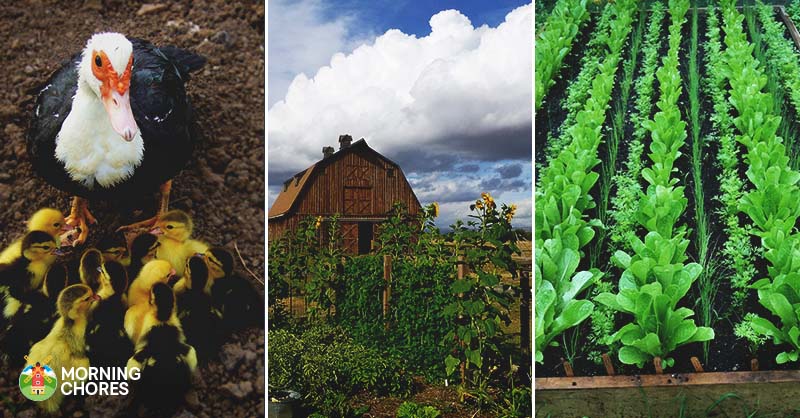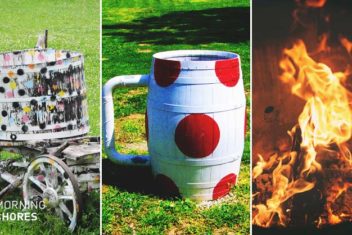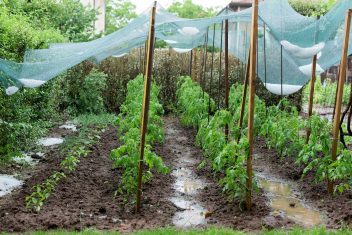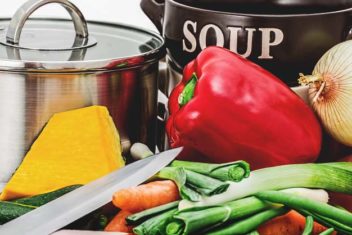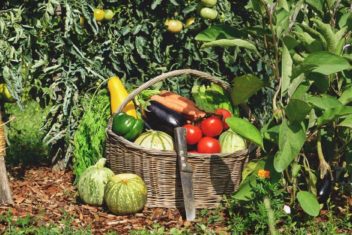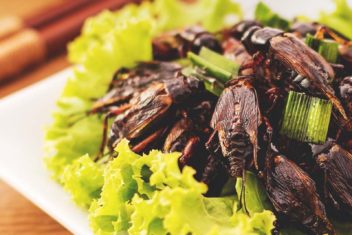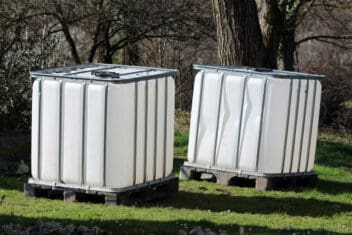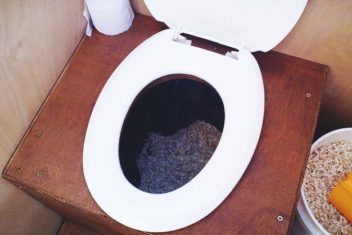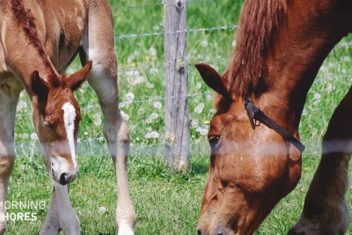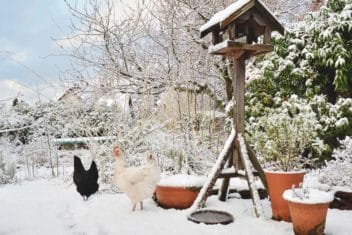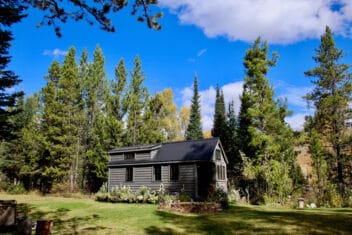Have you ever heard the term ‘hobby farm’ and wondered what it actually was?
What is the difference between a farm, a homestead, and a hobby farm?
Well, I wondered the same thing not too long ago so I began doing some research. I’d like to share with you exactly what I found out.
Then maybe you can decide exactly what type of farm you’d like to create of your own in the future.
Here is what I found out about hobby farming.
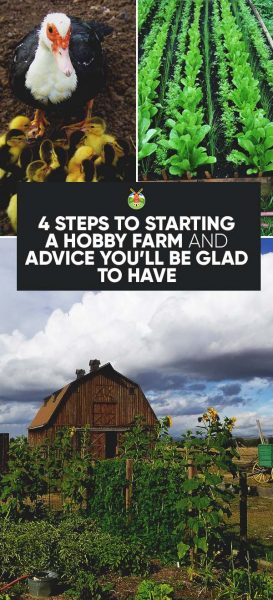
What is a Hobby Farm?
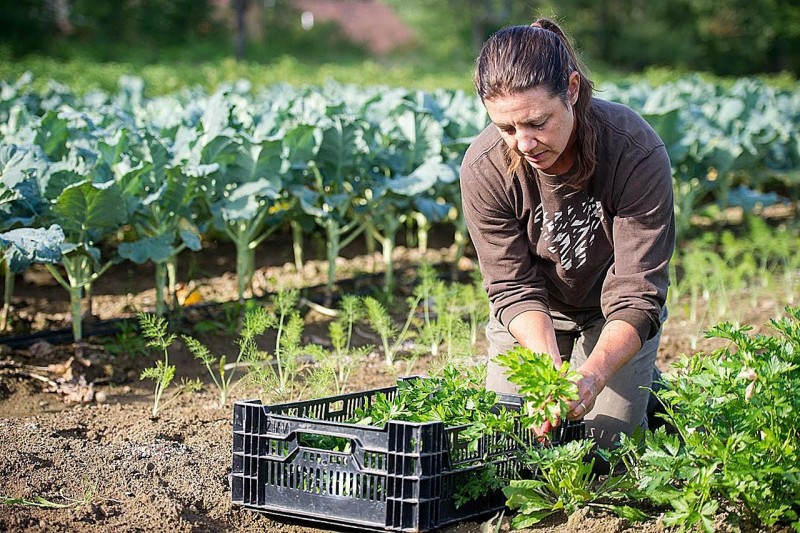
via The Spruce
A hobby farm is basically someone who practices self-sustainability by raising a farm. They do it for fun or to make a little extra money on the side.
However, they don’t farm to earn a full-time income.
So if you are someone who raises a flock of chickens in your backyard, a couple of goats, some fresh veggies, or anything else along those lines, then you are considered a hobby farmer.
Basically, the difference between a hobby farm, homestead, and a farm is this:
A hobby farm and homestead can be one and the same. It is all about your purpose behind your farming efforts.
Then a farm and a homestead could also be one and the same because if you farm for a full-time living, then you are no longer doing it just as a hobby or for supplemental income.
So now you know exactly what a hobby farm is. The next time you hear the term, you can be ‘in the know.’
The Pros and Cons of a Hobby Farm
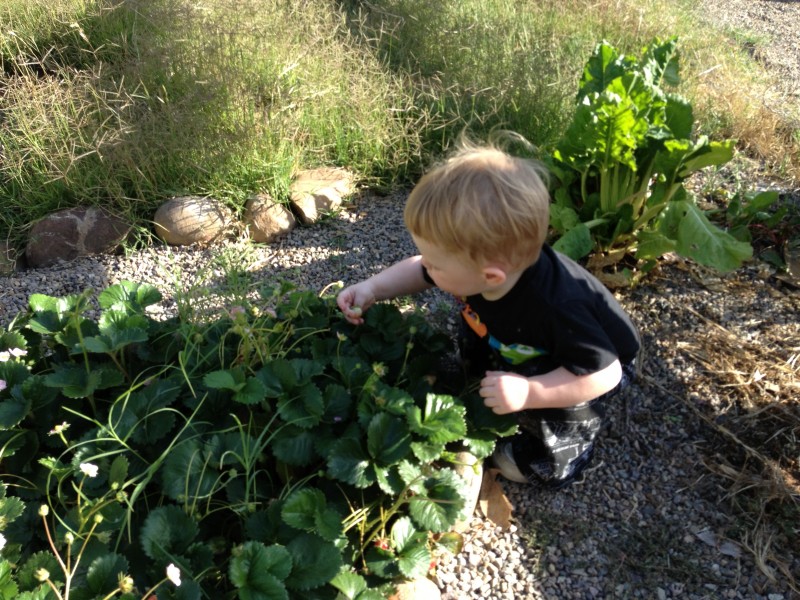
via Peter Southwood
I am a hobby farmer, technically. We raise our own meats, fruits, and vegetables to feed our family and make a little extra money.
However, we don’t make a full-time income from it. My husband still has a town job, and I work from home as a writer. That is our meat and potatoes.
But our farm allows us to not spend our money on food and instead use it in other areas of our lives. It is kind of nice to be able to save your paycheck for other things instead of spending it all or in part at the grocery store.
What is Great about Hobby Farming:
1. Therapeutic
I love farming. I had never really considered myself a ‘hobby farmer’ because when I’m out on my tractor, I really do feel like the big farmers that make their living that way.
But in reality, it is a hobby. I could quit tomorrow, and I’d have to make a new budget, but I’d still have a job and so would my husband.
However, I don’t plan on quitting anytime soon because it is my therapy. When my feet hit the floor in the morning, I go to the window and check on my goats out on the pasture. (I can see them from my bedroom window.)
When I take the dogs out first thing in the morning, I listen for my chickens and ducks. I love planting and watering my garden.
I love harvesting and canning. It brings me an unexplainable joy. No matter what kind of day I’ve had elsewhere, I can go for a walk outside among my plants and livestock, and I suddenly feel like I can breathe again.
So if you are considering raising your own food, make sure your heart is in it because if it is, you may have just found your latest stress reliever.
2. Practical
To me, hobby farming is practical. I personally think if you are physically able to do it, you should. If the whole world grew just a portion of their own food, could you imagine just how much healthier we would all be?
Plus, now that I know how simple it is to grow my own vegetables, I feel silly when I go into a grocery store and pay such high prices for food that I know won’t taste as good as what I’ve grown.
So even if you just start a small hobby farm, you will still feel some of the benefits when you eat that first homegrown tomato (there is no comparison in my mind), or you eat that first farm fresh egg.
3. Self-Sustaining
Obviously, the more you raise of your own the less you have to buy. This is called becoming more self-sufficient.
And if the economy crashes again, you’ll wish that you were more self-sustained. My husband and I learned this the hard way in our earliest years of marriage.
We got married right around the time the housing market crisis happened. Neither of us lost our jobs (thankfully), but we lived in a subdivision at the time and every day it seemed a new home was being foreclosed on.
Though this was before our leap into self-sustainability, I think it was the baby steps that got us to where we are today. Because even then, we began making our own dog food, our own laundry detergent, and eventually our own baby food when our son was born.
It definitely made us more aware of how bad things could get and just how quickly they could get that way.
So being self-sustained, is never a bad thing. It just means that while things are better in the economy, you are spending less money.
Then if things get bad again, you won’t have to fret as much about basic necessities because you’ve got those covered.
What is NOT so Great about Hobby Farming:
Though hobby farming sounds like all rainbows and sunshine, honestly, there are some drawbacks to this way of life too.
1. Not a lot of tax breaks
There is added expense to running your own hobby farm and unfortunately, not a lot of tax breaks. You’ll have to check with your local government to see what is available in your area.
But in our neck of the woods, we have to have a farm tax id. We basically get a free pass for the first 3 years where we don’t have to meet any certain quotas.
Then you use that farm tax id to bypass taxes on any items you purchase that are farm related. This is a big help when you go to purchase any type of store bought feed.
But after three years, you then have to begin to meet quotas in order to keep your farm tax id. In our area, we have to agree that we can make $10,000 in 5 years. If we do, then we get to keep our number. If not, then we lose it.
So this can be a little stressful because if you are mainly raising food for yourself and family, you may not make a couple thousand dollars a year in selling goods.
Again, the rules may vary in your area. So be sure to check with your local government agency to find out what type of tax breaks may be available to you, or any other breaks you may be able to take part in.
2. A lot of work
Hobby farming is a ton of work. You are raising your own food. This doesn’t just magically happen. You do this by the sweat of your brow.
So you will sweat over your garden. You will sweat on a hot summer day harvesting your fruits and vegetables. You will sweat when caring for your animal.
Or worse, during the winter, you don’t get the season off if you have animals.
So when their water is frozen, you’ll have to trek out in the snow and ice to thaw it because your livestock have got to have water to survive regardless of temperatures.
As I said before, when you think about hobby farming be sure your heart is in it because as fulfilling as it is, it is work. Which means it requires a lot of effort.
3. A lot of responsibility
Finally, hobby farming is a lot of responsibility. My friends came over the other night to see our new home and farm. I laughed when my friend was walking the pasture with me, and she said, “You know, I think I could get into this peaceful, simple way of life.”
I just smiled and said, “Yes, it is peaceful and definitely simple in some ways, but this is hard work. No way around that.”
She just looked at me and said, “Yeah, maybe I’ll just come over here and pick what you’ve got going.” I couldn’t help but laugh because that is a very true statement. Many friends I have know what a responsibility it is to do what we do.
For instance, when we go on vacation I can’t just head out the door on a whim. I have to find someone that can come by and check on my animals, make sure they still have food and water, water our garden, collect eggs and pick vegetables if needed.
So hobby farming creates a lot of added responsibility that a lot of people don’t care to have added to their plate.
How to Start a Hobby Farm
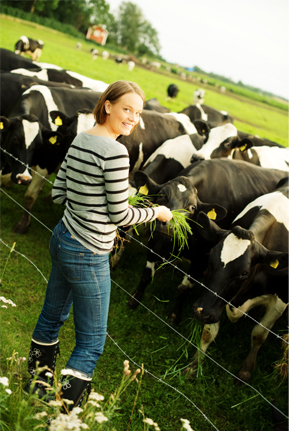
via Southern States
If you’ve read through the pros and cons and still think a hobby farm would be a great addition to your life, then congratulations! You are now part of the rest of us that just have a heartbeat for it regardless of the expense or hardship.
Here is how you create your own hobby farm:
1. Research
Before you begin anything, you always need to research. Be sure to get an idea of what you’d like to grow and what animals you’d like to raise.
Then you’ll have an understanding of what they need and how much it is going to require of you. You’ll also use this time to pick out housing plans for your animals.
For instance, chickens obviously need a chicken coop. You’ll want to research and find the plans that best fit your future set-up.
Then begin building the necessary structures for this adventure.
2. Plant a Garden
Next, you’ll want to use this research to plant a garden. A garden is a big part of becoming self-sustained.
Then you are able to harvest and preserve your own food. This will be an investment up front because you’ll need to purchase items like a canner, canning jars, and other canning supplies.
But it will save you lots of money down the road as you can preserve just about anything you would purchase in a store, yourself.
Once you have your garden planted, you are ready to move on.
3. Invest in Livestock
You will then want to invest in your livestock. This could be goats for milk, chickens for meat and eggs, rabbits for meat, or larger livestock like cattle, to be a meat or dairy source.
However, be sure that you are able to provide the needs for whatever animal you purchase. If you live on an acre, a cow will not be a good fit because they require an acre of pasture to sustain them.
But you could invest in a few backyard chickens. When I say a few, if you are going to have a small backyard flock, you’ll probably only want 4-5 hens, and you do not need a rooster unless you are planning on hatching your own eggs.
4. Find Ways to Save Money
Finally, you’ll want to look for ways to save money. This can mean growing fodder as a food source to help save on the feed bill.
Or you could put together a rain catchment system so you can use rain water to water your plants. You will be surprised of all of the ideas you will come up with through research and brainstorming.
Once you’ve reached this step, you just repeat the cycle again and again. Your hobby farm will transform into a fully functional farm over time, and if you have the heart for it, you will be amazed at what all you can do.
Now you know the in’s and out’s of hobby farming. Hopefully this information will help you in decisions you make going forward.
But I’d like to hear from you. Are you a hobby farmer? If so, what did you do to get started? If not, what is holding you back from taking the plunge?
We love hearing from you so drop us a line in the comment section below.

